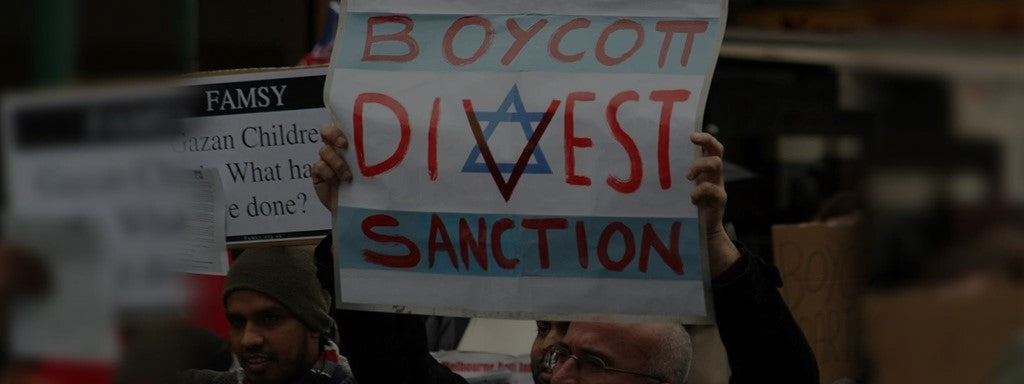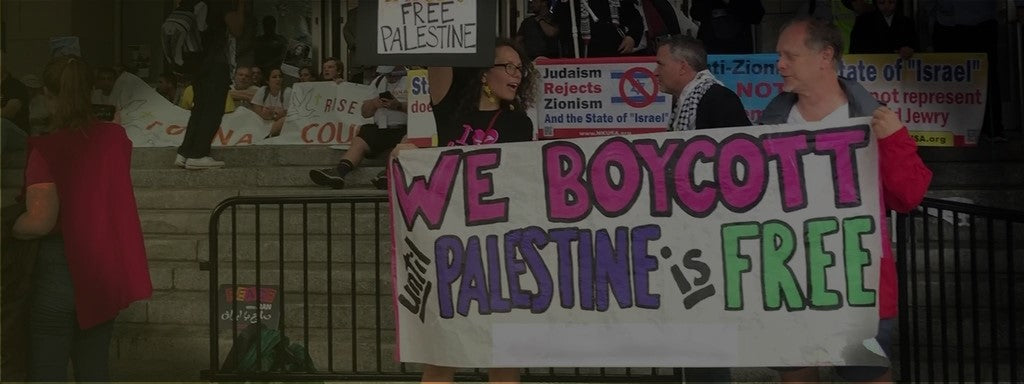Since the early 2000s, haters of Israel have been advocating the Boycott, Sanctions and Divestment movement, as a means of pressuring Israel to meet their demands. But nearly twenty years later, the economic impact of the BDS movement has been negligible, at best. At the same time though, it remains a relentless, well-funded movement.
This is because the BDS movement is more than a campaign to simply discourage people from buying Israeli products, have them recall their investments, and lobby their governments to sanction Israel. It’s about maligning Israel in the public sphere, and creating a negative impression of Israel for the average person who doesn’t know the truth, or follow the situation.
From Elder of Ziyon:
“…BDSers admit that they choose their targets of boycott for maximum leverage and publicity, even as they use Israeli products themselves. The boycotts are indeed a sideshow to their real aim - to have average people associate Israel with racism and apartheid.”
It’s in this activity of slander and de-legitimization that the BDS movement has seen the most success. And if they can achieve the intended culture shift—getting the average person to associate Israel with racism and injustice—they are one step closer to their goal of far-reaching boycotts, divestments and sanctions against Israel.
One of the BDS movement’s main targets is universities. They seek to undermine higher education with lies and misinformation, and poison the next generation of leaders. It was also one of the first targets of the modern BDS movement. In 2001, Students for Justice in Palestine began a campaign at UC Berkeley calling for divestment from Israeli companies and those that do business with Israel. In 2002, A letter was published that called for a moratorium on research and academic collaboration with Israeli institutions. It was signed by over 120 British academics. Similar letters were published in France, Italy, and Australia.
It didn’t take long for BDS to spread to other areas of society. Later in 2002, “divestment campaigns at US colleges and universities, Mainline Protestant churches, cities and unions…” began to take off.
Perhaps the most shocking adopters of BDS were the Protestant churches. Churches like the Presbyterian church USA, United Methodist church, Episcopal Church, Evangelical Lutheran Church of America, the United Church of Christ, and others have voted in favor of divestments from Israeli companies and companies that do business with Israel.
Proponents of BDS also target musicians who have scheduled performances in Israel. Sometimes artists cancel their performances, not because of any personal objection to Israeli government policies, but because of the harassment they receive from anti-Israel activists.
It’s plain that BDS is a movement of falsehoods, bent on destroying Israel simply because it is a Jewish State. While it has fortunately not had much headway in affecting Israel tangibly, it is fully engaged in the war for peoples’ hearts and minds. Their full-scale efforts on college campuses are shaping the opinions of the younger generation—our future leaders. When musicians boycott Israel, it makes a big impression on people who follow those artists, and hold them as role models.
Lovers of truth need to be fully engaged in the fight against this movement. We need to share the truth with those around us. But we can’t stop there. We need to be proactive in supporting that which BDS seeks to destroy: A beautiful nation that is a shining beacon of freedom and hope in a dark Middle East. A nation that has faced incredible opposition over its relatively short history, yet persevered, and remained strong because of courageous men and women who took a stand for what is right.
Blessed Buy Israel enables you to take a practical stand against BDS by supporting the very companies they want you to boycott. We work with families and small businesses in Judea and Samaria—one of the most contested areas on the face of the earth. Your purchase of products helps to ensure a strong Jewish presence in Judea and Samaria, and the continued work of restoration.



